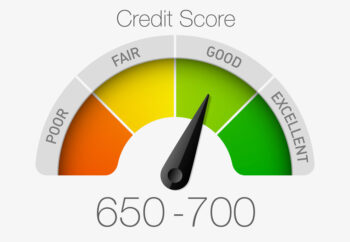Home financing is a big step in anyone’s life. It often comes down to securing a mortgage, and that’s where your credit score plays a huge role. Understanding home financing, credit scores, and specifically the FICO score can save you money and stress. Let’s dive into what you need to know!
What is a Credit Score?
A credit score is a number that reflects your creditworthiness. It basically shows lenders how reliable you are at paying off debts. The score usually falls between 300 and 850. A higher score indicates a lower risk to lenders.
Believe it or not, your credit score can influence how much house you can afford and how much you’ll end up paying over time. According to FICO, almost 90% of lenders use the FICO score to assess credit risk.
What is a FICO Score?
The FICO score is one of the most commonly used credit scoring systems. It takes various factors into account to determine your credit score. These factors include:
– Payment history (35%): This shows if you’ve paid your bills on time.
– Amount owed (30%): This checks your credit utilization, meaning how much credit you’re using compared to your total available credit.
– Length of credit history (15%): A longer credit history is generally better.
– New credit (10%): If you recently opened several new credit accounts, it may indicate higher risk.
– Types of credit used (10%): This looks at the variety of credit accounts you have, like retail accounts, credit cards, or loans.
By working on improving your FICO score, you set yourself up for better home financing options.
Why Does Your Credit Score Matter for Home Financing?
When you’re applying for home financing, your credit score can make or break your mortgage acceptance. A score of 620 or above is often the benchmark for conventional loans. However, this doesn’t mean you can’t access a loan with a lower score, but other financing options may come with higher interest rates.
According to the National Association of Realtors, average interest rates can vary significantly. For instance, a 30-year fixed-rate mortgage at a 4% interest rate vs. a 6% interest rate can mean thousands in extra payments over the life of the loan.
Checking Your Credit Score
Before you start applying for home financing, it’s critical to know where your credit score stands. You’re entitled to one annual credit report from each of the three major credit bureaus: Experian, TransUnion, and Equifax. These reports will help you see areas you might need to improve.
To get your free credit reports, visit AnnualCreditReport.com. Monitoring your report gives you valuable insights and ensures there aren’t any errors that could negatively affect your score.
Tips for Improving Your Credit Score
Improving your credit score doesn’t happen overnight, but here are some straightforward tips:
1. Pay Your Bills on Time-Set up payment alerts or automate payments if necessary.
2. Lower Your Credit Utilization- Try to use less than 30% of your available credit. This means if you have a credit card with a $1,000 limit, aim to keep the balance below $300.
3. Avoid Opening New Accounts Rapidly: Multiple inquiries can hurt your credit score. Focus instead on existing accounts.
4. Review Your Credit Report Regularly: Keeping track of your report helps you clear mistakes and ensure all information is accurate.
These steps can pave the way for better home financing options.
The Role of Lenders
Lenders might offer you various mortgage types depending on your credit score. Here are a few common ones:
– Conventional Loans: Often require a higher credit score but typically offer lower interest rates.
– FHA Loans: These are government-backed loans that can be accessible with lower credit scores, usually starting at 580.
– VA Loans: For veterans, these loans allow for flexible credit requirements and no down payment!
Each lender might have different standards, but knowing your credit score can steer you in the right direction.
Beware of Common Misconceptions
There are many myths when it comes to credit scores and home financing. One common misconception is that checking your credit score hurts it. This is simply not true! Checking your own credit score is a “soft inquiry” that has no negative effects.
Another myth is that income alone determines loan eligibility. While having a reliable income is essential, your credit score weighs heavily in that decision.
The Impact of Errors in Your Credit Report
Sometimes inaccuracies can plague your credit report. This can happen due to identity errors or even errors made by lenders. These mistakes can affect your FICO score and future home financing options. It’s crucial to dispute any incorrect information with the credit bureaus to maintain an accurate picture of your credit history.
In Conclusion
Understanding the connection between home financing, credit scores, and FICO scores equips you to make better budget choices as you prepare for homeownership. Remember, your credit score matters. If you’re planning to buy a home, check your annual credit report first and work on improving your score. It’s the key to unlocking more favorable financing options.
Empowered with knowledge, you can confidently navigate the home financing process. Don’t hesitate to dive into this important area of personal finance; every step counts! For more detailed insights on credit and financing, check resources like the Consumer Financial Protection Bureau (CFPB) or the FICO website. Happy home hunting!
